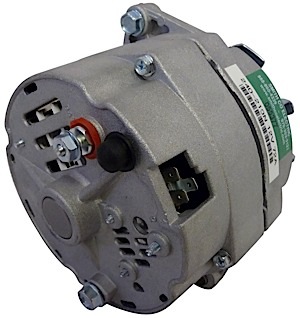Article written by Underhoodservice.com
- One Test Is Not Enough
If only battery voltage is present at the battery on a running engine, does this mean the alternator is “bad?” No, it does not. That only means that the alternator is not charging, but does not reveal why. Therefore, it does not prove a faulty alternator. All too often the alternator is condemned by technicians due to this test alone.
- Look It Up

For some, it’s normal to see as high as 16 volts for long periods at a time. For others, it’s normal to see as low as 13 volts. For some, a constant 13.6 volts is an indication of a problem. Still yet, it’s perfectly normal for others to see the alternator not charge at all intermittently. Some alternators are controlled only with an internal or external regulator. Some are controlled only by the PCM. Still yet, others are controlled by a voltage regulator and the PCM. Not knowing what controls what, and how it is supposed to function, can’t cause a misdiagnosis or cause a critical problem to be over looked. Take the time to look at the service information.

 Replacing your alternator
Replacing your alternator